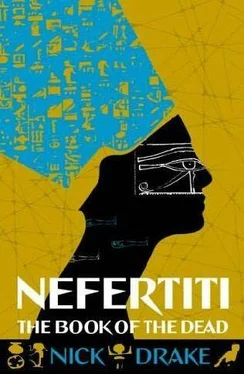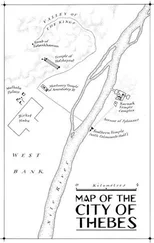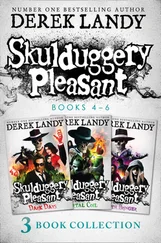Nick Drake - Nefertiti.he book of the dead
Здесь есть возможность читать онлайн «Nick Drake - Nefertiti.he book of the dead» весь текст электронной книги совершенно бесплатно (целиком полную версию без сокращений). В некоторых случаях можно слушать аудио, скачать через торрент в формате fb2 и присутствует краткое содержание. Жанр: Исторические приключения, на английском языке. Описание произведения, (предисловие) а так же отзывы посетителей доступны на портале библиотеки ЛибКат.
- Название:Nefertiti.he book of the dead
- Автор:
- Жанр:
- Год:неизвестен
- ISBN:нет данных
- Рейтинг книги:4 / 5. Голосов: 1
-
Избранное:Добавить в избранное
- Отзывы:
-
Ваша оценка:
- 80
- 1
- 2
- 3
- 4
- 5
Nefertiti.he book of the dead: краткое содержание, описание и аннотация
Предлагаем к чтению аннотацию, описание, краткое содержание или предисловие (зависит от того, что написал сам автор книги «Nefertiti.he book of the dead»). Если вы не нашли необходимую информацию о книге — напишите в комментариях, мы постараемся отыскать её.
Nefertiti.he book of the dead — читать онлайн бесплатно полную книгу (весь текст) целиком
Ниже представлен текст книги, разбитый по страницам. Система сохранения места последней прочитанной страницы, позволяет с удобством читать онлайн бесплатно книгу «Nefertiti.he book of the dead», без необходимости каждый раз заново искать на чём Вы остановились. Поставьте закладку, и сможете в любой момент перейти на страницу, на которой закончили чтение.
Интервал:
Закладка:
I walked down the streets towards the docks, beneath the dusty white awnings that protect us from the noon sun. I saw the local kids running along the rooftops, shouting and darting between the piles of drying crops and fruit, jostling the cages of birds causing tiny uproars of shrieks and songs, jumping over the afternoon sleepers and leaping the crazy gaps between the buildings. I passed by the stalls piled with colourful produce and walked down the Alley of Fruit and then into the shadowy passages under the patterned awnings where the expensive shops sell rare clever monkeys, giraffe skins, ostrich eggs and tusks engraved with prayers. The whole world brings its tributes and its wonders to us: the remarkable fruits of its endless labours are presented at our doors. Or, at least, the doors of those who do not have to wait so many months for their gift of pay (note to self: reapply to treasurer for unpaid salary gifts).
I prefer this great chaos of the living streets to the hushed and ordered temples, courts and sanctuaries of the gods and the hierarchies of the Priests. I prefer noise and mess and dirt, even the workers' suburbs in the east, and the smelly pig yards, and the dogs on chains in the miserable dark hovels these people must call home. Those are the places we enter with the caution of experience, knowing we are hated and in danger. The law of the Medjay, whose authority to maintain order stretches through all the Provinces of the Two Lands, has no power there, although few of us would admit it. When we approach, kites, their stretched canvases painted with the eyes of angry gods, rise, dart and swoop in the sky, to warn of our approach. But then I think our law has no sway in the palaces and temples either. They too have their definitive powers. I will no doubt find this where I am bound.
I arrived, finally, at the docks, and found among the thousands of vessels the boat which was to carry me on the first stage of this journey. I was the last to board, and as soon as I was installed the sailors pushed off, the oars came out, and we began to merge into the life of the Great River, which now spread out wide with all its traffic of people and goods, as far as the eye can travel to the horizon where the Black Land meets the Red and holds it back for all time.
Lightland, our world of light. The triumph of time. Countless boats, sails bowed to the invisible wind: the fishing men, the larger transports of stones and cattle, the ferries that travel between the banks of the river, between the temples to the east and the tombs to the west, between the rising and the setting of the sun, with their mortal passengers. Flocks of ibis wading in the shallows. Votive blue lotus flowers bobbing in the waters beside the remains of everyday life: bits of food, clothing, rubbish, dead fish and dogs, and dog fish, and cat fish. The endless quiet creaking of the shadoufs. The ceaseless gifts of the Great River. Thebes survives for and by it. Or rather, the river grants the waters of life to the city. Where would we be without water? We would be nothing but the desert that fears the river.
They say the gods possess the river, and that the river is a god, but I think its owners are the Priests in the offices, and the rich with their villas and terraces where the cool water laps at their soft and lazy feet. And he who owns the water, owns the city – indeed owns life itself. But no-one in truth owns the river. It is greater, more enduring and more powerful than any of us, almost more than any god. It can tear us apart with its force or starve us by withholding its yearly inundation. It is full of death. It carries corpses of beasts and men and children whose dwelling time in its depths has shocked them green. Sometimes I believe I sense their hopeless and unfinished spirits as they touch upon the water, sending out silent concentric rings as signs to tell us they were here and are gone without rest. And yet it sustains our rich black earth from which spring our green crops, our barley and emmer wheat.
As the city of my birth and life dwindled in our wake, I left the world I know, where we live out our brief stories between the Black and the Red, between the land of the living and the rising sun and the land of long shadows and death, between the little moments and luxuries of our life and the western desert, that wilderness where we send our criminals to die only for them to return as demons to haunt us as we sleep. Once, they say, before time began the whole of the land was green, with herds of water buffalo, gazelles and elephants. And suddenly I remembered years ago, when my father and I rode into the desert. A great storm had changed again the landscape of the dunes. We found revealed the skeleton of a crocodile, so far from any kind of water. What else lies hidden there? Great cities, strange statues, lost peoples, their ships built to sail the Otherworld's eternal sea of sand.
Alas, I am carried away again. I must be sober as the great serpent of water carries me away from all I know, and all I love, on its black-ness, its perpetual glittering scales, with its sightless memory of a long journey from high in the unknown stones of Nubia, down through the great cataracts, and into the fields, into the fruit and the vegetables, into the wine, into the sea; and somewhere into snow.
3
I admire the neatness of a boat. The simplicity of necessity. Blankets folded in the morning and stowed. Objects made small and precise for their purpose. Everything in its place. The captain has blue eyes, a handful of crooked white teeth, a confident belly and the hands-on look of an intelligence at home on the water; an intelligence that can look through people of the land and discern their motives and thoughts as if they were as easy to read as small fish in the shallows. Then there is the boat itself, a wonderful construction, an equation between wind and water that results in sails filling to perfect curves, drawing out the ropes to an immaculate geometrical tension that brings about the miraculous power to draw the vessel and its temporary passengers through the water. Look: the perfect cut of the prow through the skin of the water that heals as we pass. The wake – blind white fingers feeling their way along the edge of some unknown material, then relenting, with little shrugs and gestures of farewell, and sinking back into the blackness whence they so briefly appeared.
Here I am, a senior detective of the Medjay, spending my time pondering the inscrutable puzzles of the passing water as we are carried with the current of the river past Coptos, Dendera and the Temple of Hathor, and the Temple of Osiris at Abydos. My mind like a water fly, thinking of nothing, when I should be preparing myself for the urgent mystery at hand.
The captain invited the passengers to dine together this evening, around the brazier, for it is cold on the water once the sun has descended. I hate dinner parties, and I annoy Tanefert by making sure work prevents me from attending the invitations we receive. In part, this is because I cannot talk, at the table or even anywhere else, about my work: who wants to hear about murder when they are enjoying their meat? And in part because I just cannot discuss the perils and evils of the world from the point of view of luxury, around a table set with good things, as if it were all just matter for debate.
We greeted each other politely as we took our places, and then fell into an uneasy silence. It is true that the Great Changes have brought about more caution, and sometimes almost suspicion, into daily life. Once we spoke freely; now people think twice before they express an opinion. Once one provoked laughter and amusement for expressing a heretical point of view; now such things are met with silence and discomfort.
I was seated next to a portly gentleman whose belly was the most notable part of his anatomy; it was like a great globe with a white moony head gazing down in constant surprise at itself. The food, which was simple and plentiful, drew from him gestures of approval and delight: his polished little hands wafted in the air to describe his pleasure. He leaned over to me, and broke the silence: 'And what, sir, is your purpose in our new City of the Horizon of the Aten?'
Читать дальшеИнтервал:
Закладка:
Похожие книги на «Nefertiti.he book of the dead»
Представляем Вашему вниманию похожие книги на «Nefertiti.he book of the dead» списком для выбора. Мы отобрали схожую по названию и смыслу литературу в надежде предоставить читателям больше вариантов отыскать новые, интересные, ещё непрочитанные произведения.
Обсуждение, отзывы о книге «Nefertiti.he book of the dead» и просто собственные мнения читателей. Оставьте ваши комментарии, напишите, что Вы думаете о произведении, его смысле или главных героях. Укажите что конкретно понравилось, а что нет, и почему Вы так считаете.











